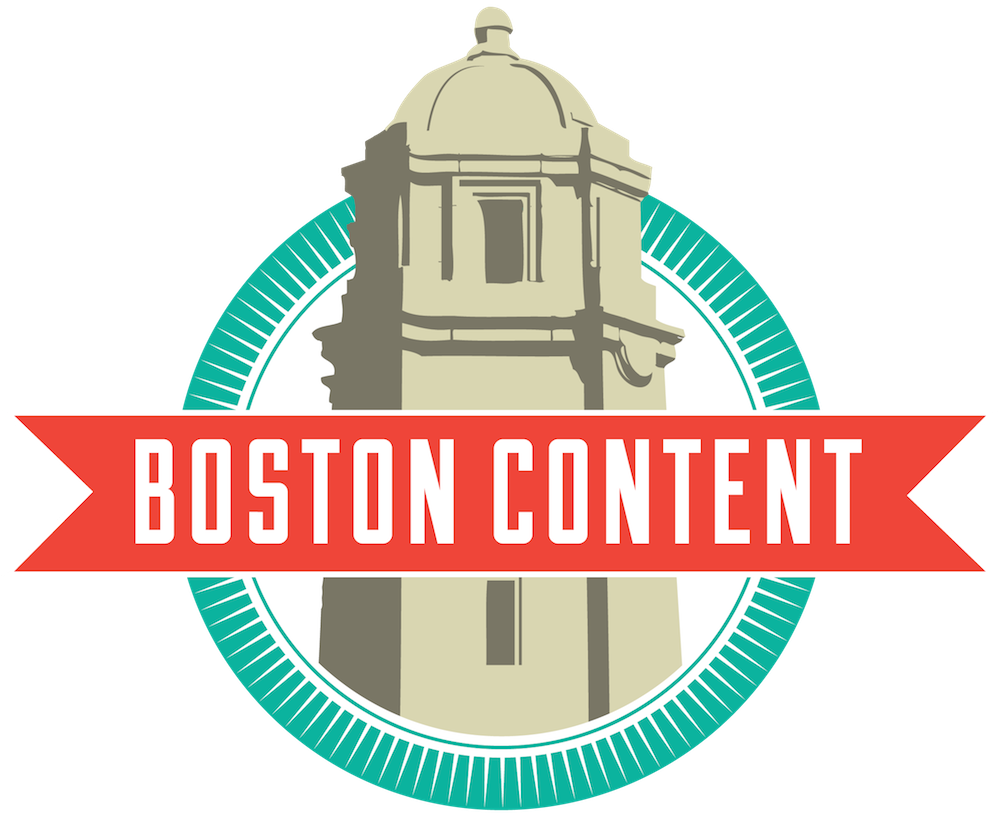Image via BosCon member and regular volunteer photographer, Ben Lewis. (Thanks Ben!)
This post was written by Boston Content Executive Director Devin Bramhall, product marketing manager at Shareaholic. Follow her, @devinemily.
Creating content that is helpful and relevant to our audience while also producing measurable impact for the company we work for can feel more like a mathematical equation for marketers than a creative project we are inspired to pursue.
Like any worthy challenge, however, the trial and error, inventiveness and dedication required to solve this "problem" are often the very things that drew us to this industry in the first place.
Our success lies in our creativity, ability to collaborate — both internally and externally with clients and users — and the communities we build that inspire and support us. Hence the theme for this year's Boston Content quarterly workshops: Creativity, Collaboration and Community.
In our 2015 kickoff event, held at WeWork South Station, we discussed the business side of creativity and the challenges we all face working in a qualitative field responsible for quantifiable results. As usual, I learned a lot, so here are a just few things that stood out to me. If you want to learn more, check out the links to complete notes for each topic. Enjoy!
Moments of Un-Inspiration: Finding Creativity When the Magic Just Isn't There
Led by: Ted Karczewski, Marketing Content Specialist at Skyword
Talk to friends and family
Looking to people in your personal network who fit your audience profile can be an efficient way to conduct early research that helps you hone your marketing strategy. When you combine qualitative feedback with insights from Google Analytics — like what keywords your audience is searching for that leads them to your content — you can develop strong roadmaps that include informed tests and better-informed projected outcomes.
Routine can be your friend, too
Though it seems more intuitive that repetition would be a creativity killer, there are some routines that actually inspire your artistic side. Subscribe to a handful of podcasts and set aside time to listen to them every week. Follow and make lists of people who inspire you on Twitter, and go a step further to explore their lists to find people to add to yours. Keep idea notebooks and refer back to them for those days when you're having trouble coming up with new topics to write about.
There were a lot of great ideas shared here, so check out the event notes for more!
Challenges & Opportunities of Content Freelancing
Led by: Emma Siemasko, Content Marketing at Grasshopper
Be honest about what you've done
Believe it or not, being honest about your skills can actually work to your benefit when speaking with potential employers or clients. Having a [tactful] open and honest dialog builds trust and helps you develop a productive working arrangement that can encourage repeat business.
Embrace how you work
There's no such thing as survival of the fittest when it comes to task management. Everyone is different, and so is how they organize their to-dos. Embrace whatever method works for you, whether it's Post-Its, Trello, built-in mobile task managers or the back of your hand. The trick is to stick with your plan long enough to figure out what's working and then make improvements along the way.
Emma also shared a list of resources she recommends for freelancers — make sure to check it out!
How Do You Market Yourself Without Sounding Like a Marketer?
Led by: Sara Castellanos, Technology, VC and Startups reporter for the Boston Business Journal
Practice Makes Your Voice Heard
If you don't develop your own voice, then you don't have anything unique to market. And the best way to find yours is to, well, start writing! Even if you don't publish anything, practicing will help you strengthen your personal style. Write for yourself. Write just because. Write when you don't think you have anything to say! We're all familiar with Malcolm Gladwell's "The 10,000 Hour Rule" and, like it or not, your writing does improve the more you do it — so get to it!
The "Why" Matters
The next time you read an article, visit a website or watch a video that inspires you, take a moment to ask yourself why you liked it. Perhaps it is the style of writing, the subject matter or maybe even the way it was constructed that stood out to you. Stopping to explore what excites you can lead to new ideas or areas you want to develop. It can also help you get out of a creative rut.
ROI for Y-O-U
Led by: Trisha Antonsen, Associate Director of Content Creation at Wayfair
Don't create goals in a vacuum
Talk to key stakeholders at your company. Talk to your coworkers. Just get feedback! When you [strategically] involve people outside your department, you accomplish more than broadening your perspective: you have a list of people who now feel like a part of your goals, and you can remind them of that when you need support.
Outline your goals and share them
Once you set your goals, create a one-page summary and share it with the entire company, then reference it often — with yourself and with others. When your goals are top of mind, the decisions you make are more likely to be informed by them, as well.
Trish also shared her chart for creating content goals. Click the image below to download the PDF.
To download notes from past events, visit our Event Recap page. Our next workshop is on June 2, and will focus on collaboration. Stay tuned for updates!


